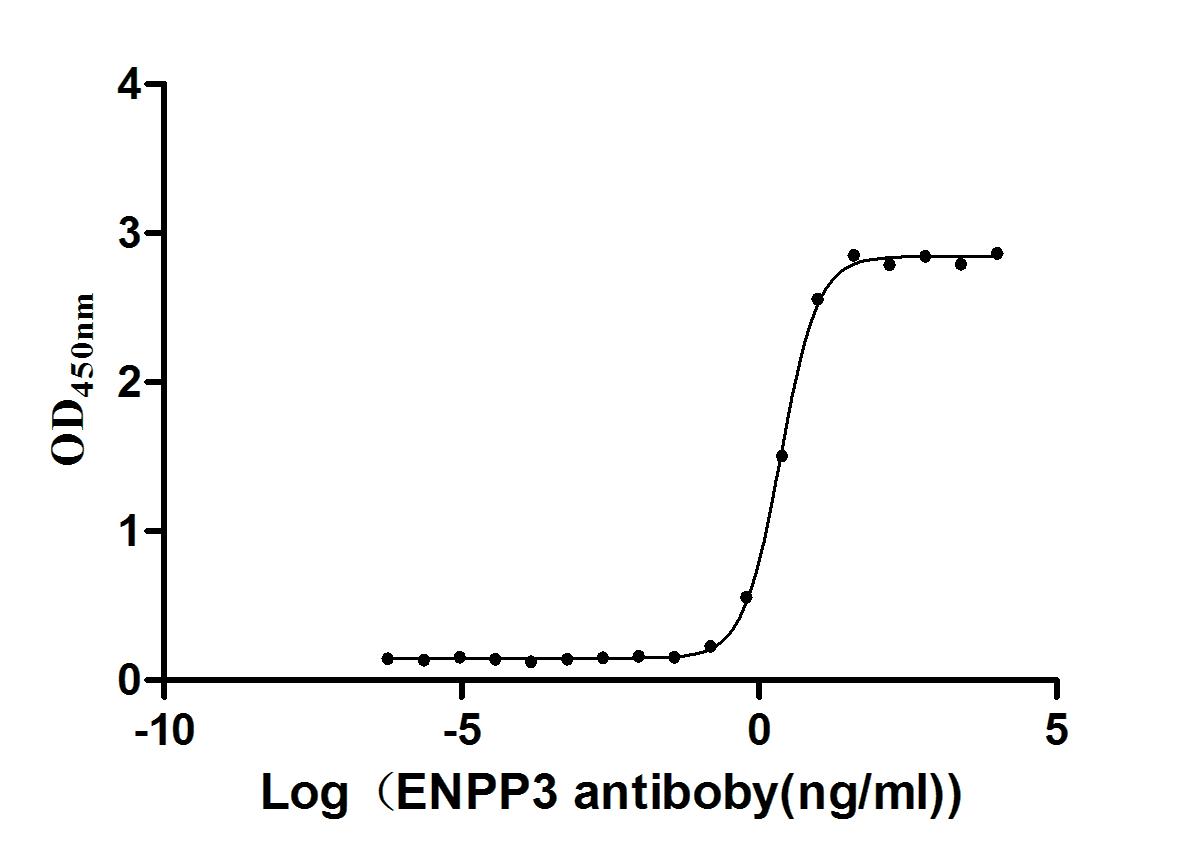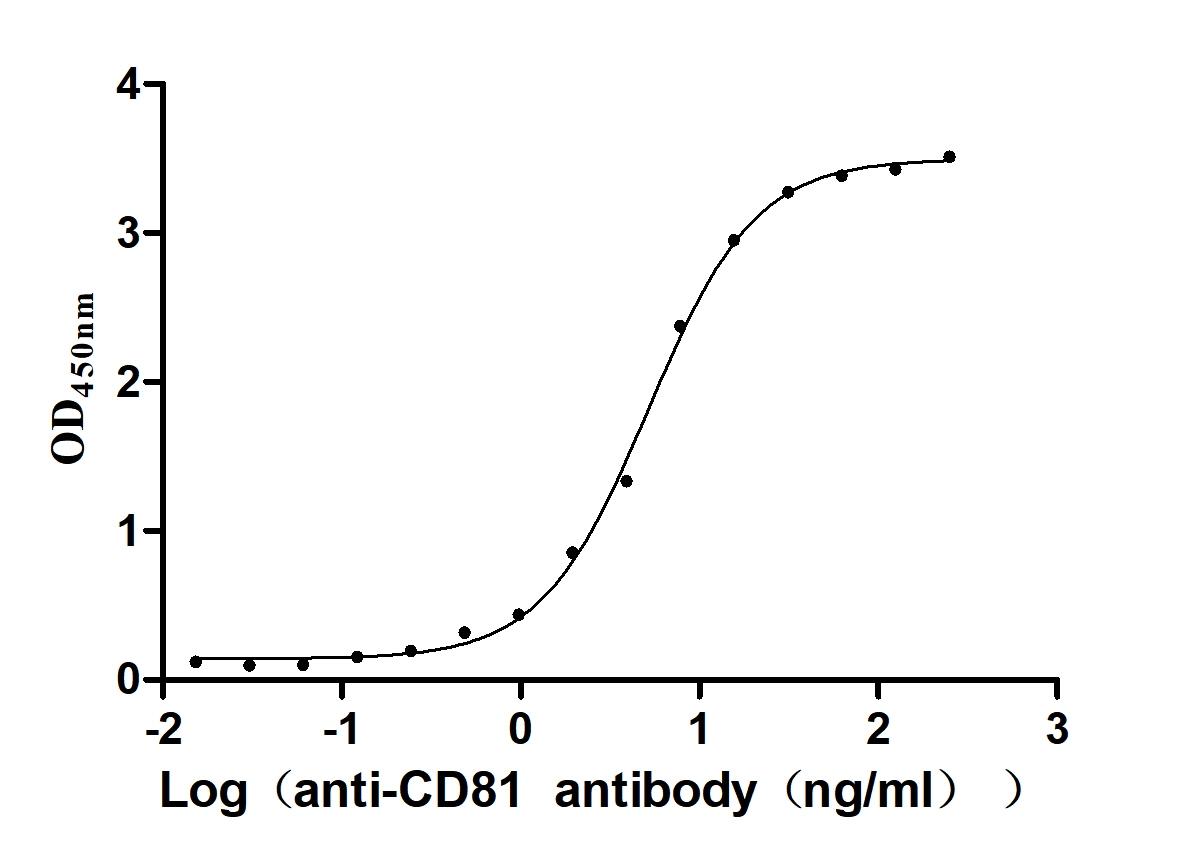Recombinant Mouse Sodium/potassium-transporting ATPase subunit gamma (Fxyd2)
-
中文名稱:小鼠Fxyd2重組蛋白
-
貨號(hào):CSB-CF009090MO
-
規(guī)格:
-
來(lái)源:in vitro E.coli expression system
-
其他:
產(chǎn)品詳情
-
基因名:
-
Uniprot No.:
-
別名:Fxyd2; Atp1c; Atp1g1; Sodium/potassium-transporting ATPase subunit gamma; Na(+/K(+ ATPase subunit gamma; FXYD domain-containing ion transport regulator 2; Sodium pump gamma chain
-
種屬:Mus musculus (Mouse)
-
蛋白長(zhǎng)度:Full length protein
-
表達(dá)區(qū)域:1-70
-
氨基酸序列MAGEISDLSANSGGSAKGTENPFEYDYETVRKGGLIFAGLAFVVGLLIILSKRFRCGGGK KHRQVNEDEL
Note: The complete sequence may include tag sequence, target protein sequence, linker sequence and extra sequence that is translated with the protein sequence for the purpose(s) of secretion, stability, solubility, etc.
If the exact amino acid sequence of this recombinant protein is critical to your application, please explicitly request the full and complete sequence of this protein before ordering. -
蛋白標(biāo)簽:N-terminal 10xHis-tagged
-
產(chǎn)品提供形式:Liquid or Lyophilized powder
Note: We will preferentially ship the format that we have in stock, however, if you have any special requirement for the format, please remark your requirement when placing the order, we will prepare according to your demand. -
緩沖液:Lyophilized from Tris/PBS-based buffer, 6% Trehalose, pH 8.0
-
儲(chǔ)存條件:Store at -20°C/-80°C upon receipt, aliquoting is necessary for mutiple use. Avoid repeated freeze-thaw cycles.
-
保質(zhì)期:The shelf life is related to many factors, storage state, buffer ingredients, storage temperature and the stability of the protein itself.
Generally, the shelf life of liquid form is 6 months at -20°C/-80°C. The shelf life of lyophilized form is 12 months at -20°C/-80°C. -
貨期:Basically, we can dispatch the products out in 1-3 working days after receiving your orders. Delivery time may differ from different purchasing way or location, please kindly consult your local distributors for specific delivery time.Note: All of our proteins are default shipped with normal blue ice packs, if you request to ship with dry ice, please communicate with us in advance and extra fees will be charged.
-
注意事項(xiàng):Repeated freezing and thawing is not recommended. Store working aliquots at 4°C for up to one week.
-
Datasheet & COA:Please contact us to get it.
相關(guān)產(chǎn)品
靶點(diǎn)詳情
-
功能:May be involved in forming the receptor site for cardiac glycoside binding or may modulate the transport function of the sodium ATPase.
-
基因功能參考文獻(xiàn):
- FXYD2 activity may be a fundamental mechanism underlying the persistent hypersensitivity to pain induced by inflammation. PMID: 25633594
- Data suggest that in pancreatic beta cells regulatory subunit of Na,K-ATPase FXYD2 plays a role in Akt signaling pathways associated with cell growth and proliferation. PMID: 23344951
- The transcription factor Runx1 controls FXYD2 expression during the maturation of the somato-sensory system, partly through regulation of the tyrosine kinase receptor Ret. PMID: 22253804
- Fxyd2 encodes three mRNAs that have tissue-specific expression patterns. PMID: 11526196
- the gamma-subunit has an important role in the function of Na-K-ATPase to sustain the cellular cation balance over the plasma membrane in a hypertonic environment. PMID: 15572522
- FXYD2 has a role in Na+ affinity and regulating thermal stability in mice PMID: 15755730
- direct and critical role of the gamma-subunit on IMCD3 cell survival and/or adaptation in response to ionic hypertonic stress PMID: 16804105
顯示更多
收起更多
-
亞細(xì)胞定位:Membrane; Single-pass type III membrane protein.
-
蛋白家族:FXYD family
-
組織特異性:Highest levels expressed in the kidney and spleen. Restricted to the basolateral membrane in renal epithelial cells and varies in its level of expression along the nephron.
-
數(shù)據(jù)庫(kù)鏈接:
Most popular with customers
-
Express system: Mammalian cell
Species: Homo sapiens (Human)
-
Recombinant Mouse Claudin-18.2 (Cldn18.2)-VLPs (Active)
Express system: Mammalian cell
Species: Mus musculus (Mouse)
-
Recombinant Human CD81 antigen (CD81), partial (Active)
Express system: Mammalian cell
Species: Homo sapiens (Human)



-AC1.jpg)










